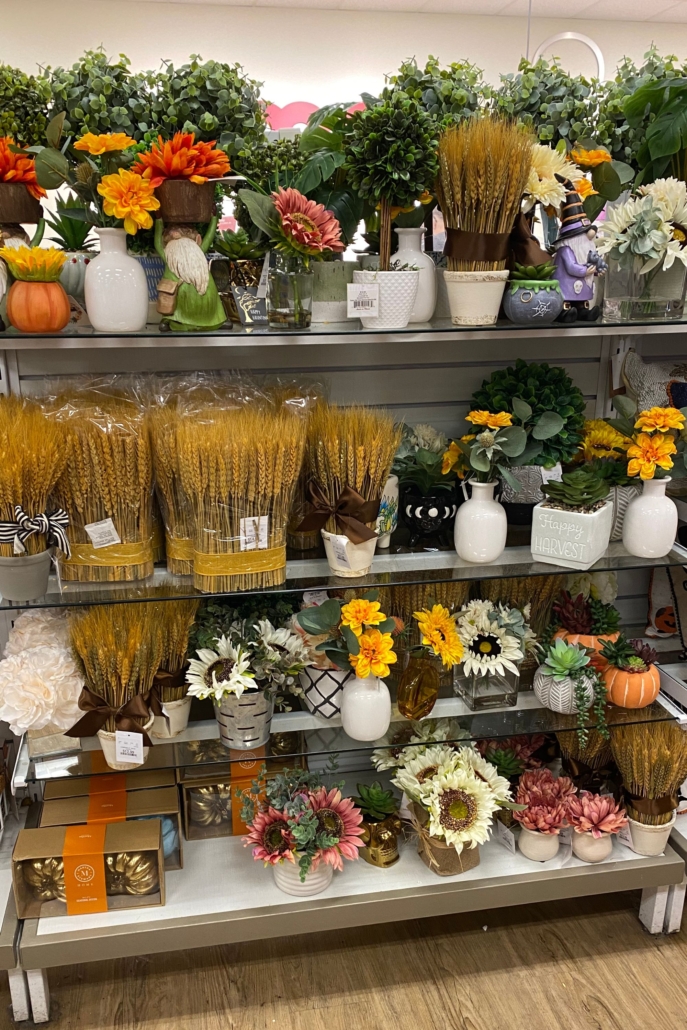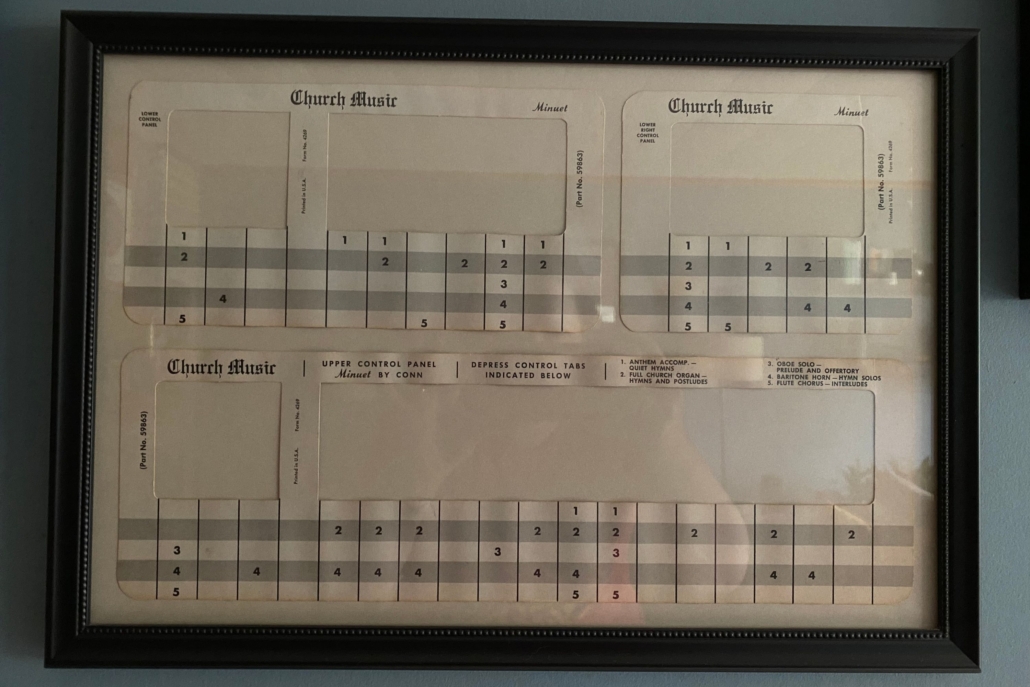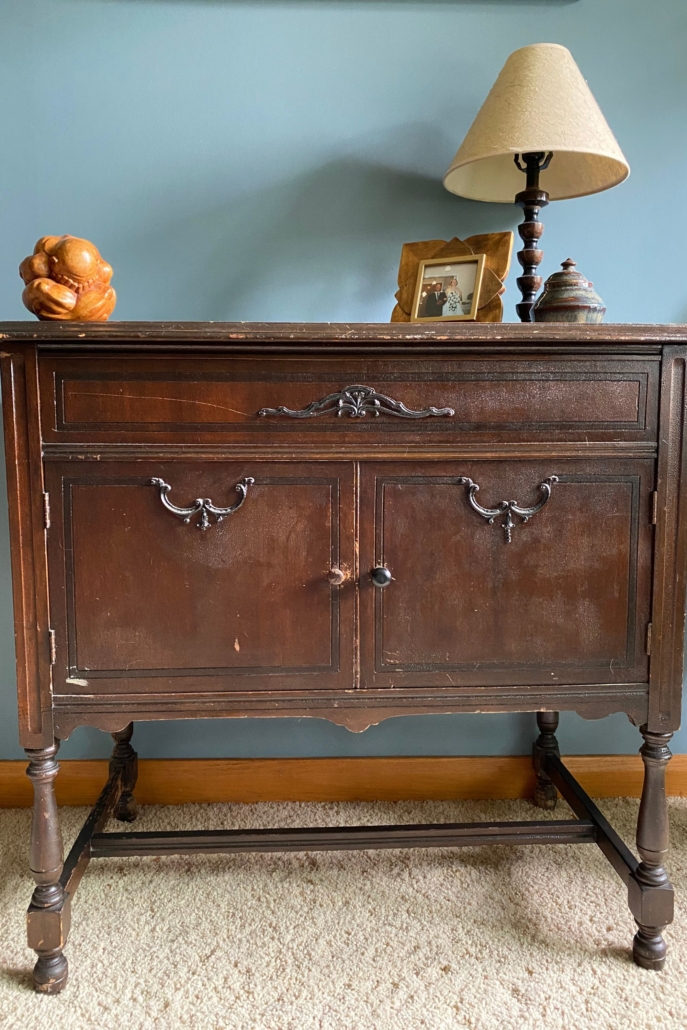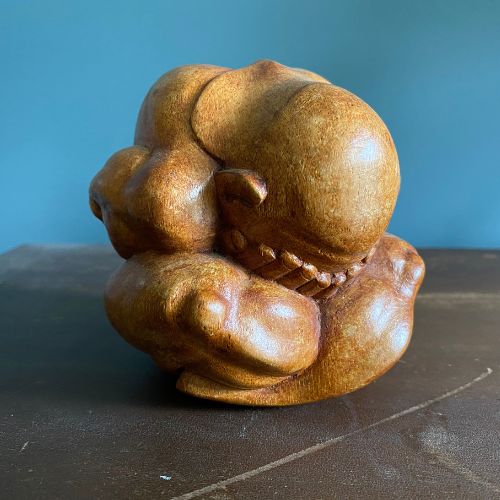The checkout lines at these stores are a snake of display shelves containing all sorts of cute coffee mugs, fall and Halloween decorations, and various other random crap. As I stared at the selves teeming with fake plants, it dawned on me – all of this will be trash someday. Everything in this store will eventually end up in a landfill. Everything in my house, your house, and our parents’ houses will ultimately be discarded. I looked over the shelves, displays, and merchandise racks, stunned as I waited to purchase my skillet.
I snapped a picture of the shelves of fake plants and texted my best friend. If I had to sit with this, I didn’t want to sit alone. I knew she would get it.
The shelf of fake plants that inspired this blog.
The cards from the organ my grandpa gave me.
As I sit in my living room typing this blog, I look around at the items present. My grandpa bought me a third-hand organ when I was 12 (I was raised Catholic, so playing the organ is a logical musical option). It had these cards you could lay over the stops. The cards noted which stops to turn on to achieve a specific sound. The organ is long gone due to the lack of vacuum tubes and other parts required to keep it in working order; however, I saved the set of cards I often used as a memento. A few years ago, I framed them and hung them in my living room. They mean nothing to anyone but me.
And one day, they will be in a landfill.
I have four hard-backed, green cloth-bound books that my uncle helped print while working at R. & R. Donnelly. He was so proud of those books and the job he did in his 40-something years of working in printing and bookbinding.
And one day, they will be in a landfill.
The wooden cabinet sits in my dining room. It was once a working Victrola owned by my great-grandmother. On the Victrola case sits a beautiful wooden figure – a person doubled over in some intense emotional reaction. I saw it nearly 10 years ago at a little shop in Springfield, MO. It so captured my attention and tugged at my heart that I bought it. Years later, it still grabs at me.
And one day, they will be in a landfill.
While this isn’t necessarily a healthy way to be in the world, it is something to consider. There is nothing wrong with having the things you need or owning things that have meaning. Most things I own either have meaning to me and/or serve a specific needed functionality. However, it is also essential to be aware of how much you have, as someday, it will all be in a landfill, and we only have so much space to bury our junk. Additionally, ultimately someone else will have to navigate what to do with your stuff when you are gone. Trust me, your stuff isn’t going to mean as much to others as you think. For the most part, your stuff really only means something to you.
My great-grandmother’s Victrola and the wood carving that caught my attention.
While I doubt the number of books I acquire will change (we all have our limits), I will think twice before I buy that sweatshirt or “neat” trinket I see on vacation. Likewise, I don’t need pillows that change with the seasons. And I definitely can bypass getting anything from Wish. Instead, I will take a picture or just rely on the item’s memory as a souvenir. If we want a world for our children, grandchildren, and great-grandchildren that is worth living in, we need to consider how we live and what we consume now. We are stewards of this planet now, and we are responsible for how we leave it for future generations.
Let’s be good stewards.
